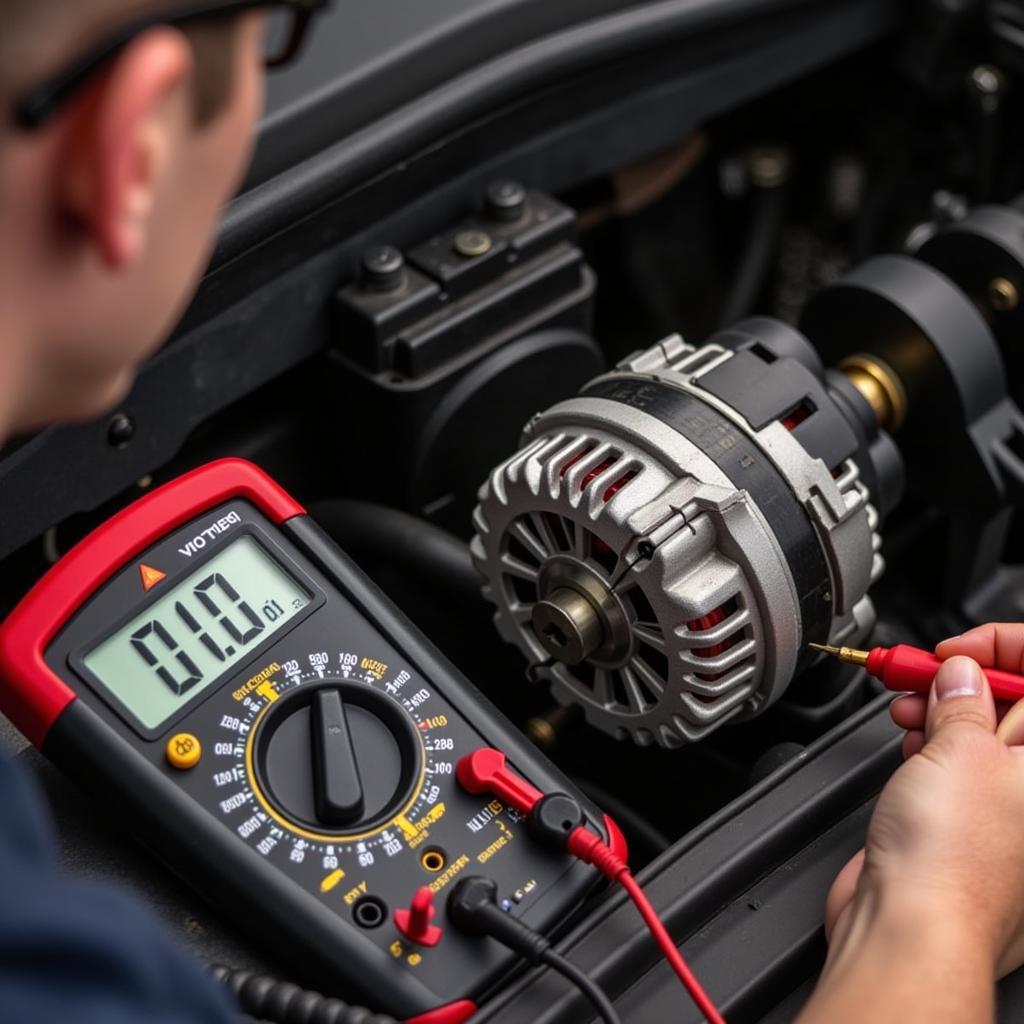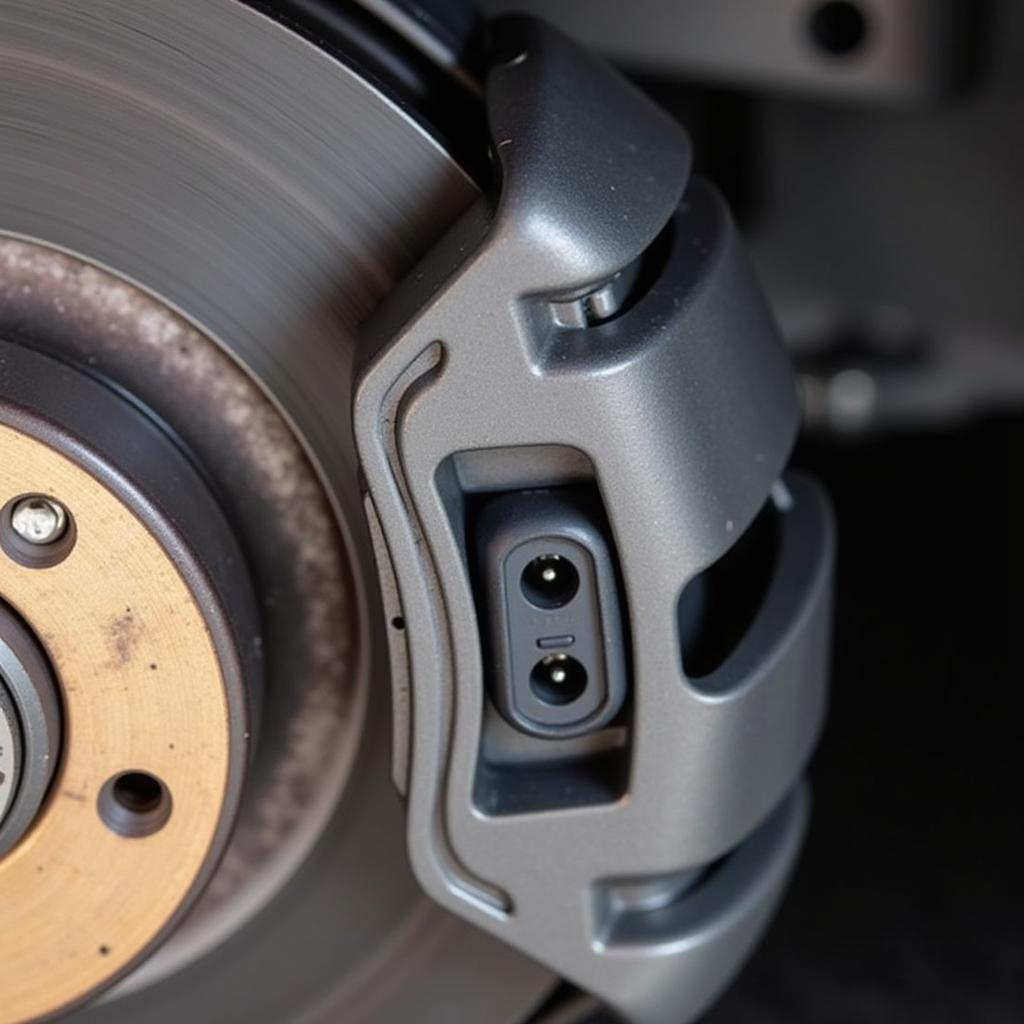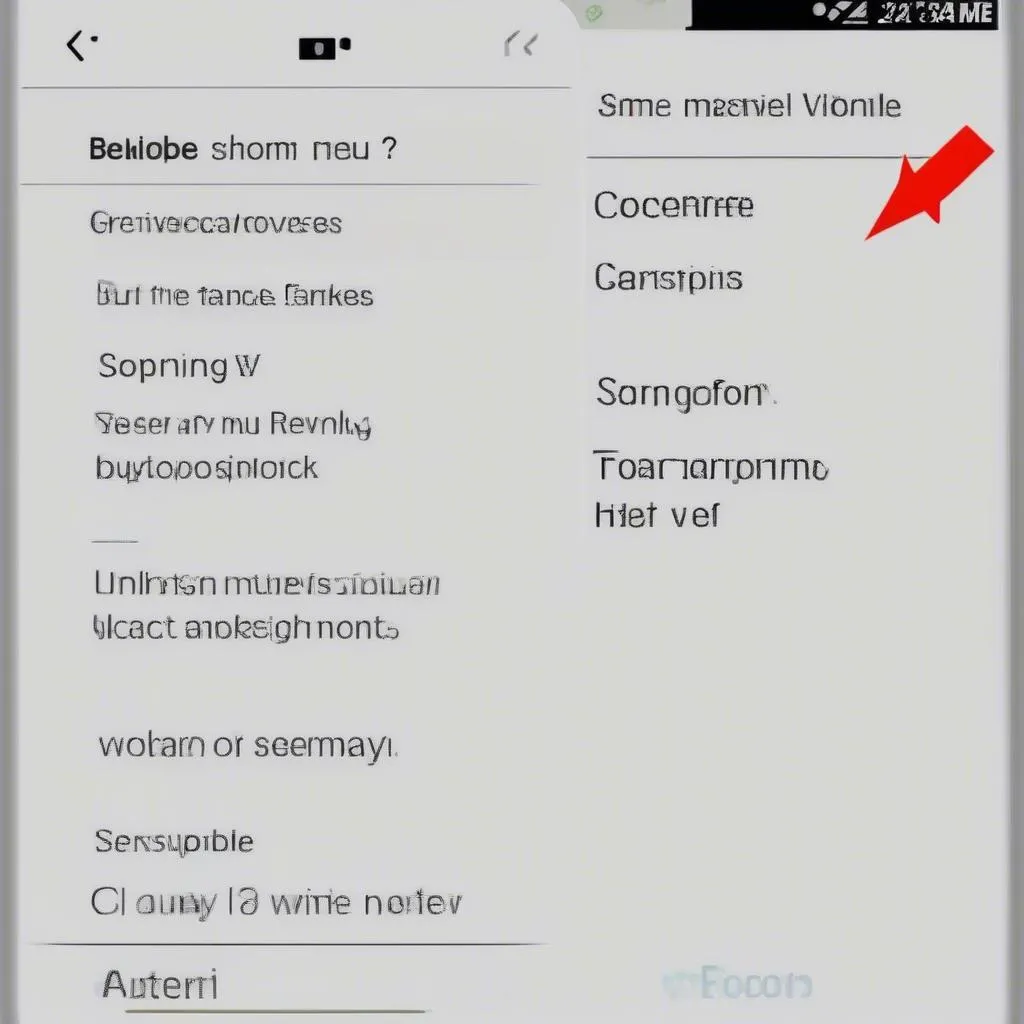You changed your car battery, expecting a roar back to life, but instead, you’re met with silence. A dead car after a new battery installation is frustrating, but surprisingly common. This article dives into the reasons why your car won’t start after replacing the battery and offers practical solutions to get you back on the road.
One common reason is loose or corroded battery terminals. After disconnecting the old battery, always clean the terminals on the cables and the new battery posts using a wire brush and a baking soda/water solution. Make sure the terminals are tightly secured after connecting them to the new battery. If you’re unsure how to do this, check your car’s owner’s manual or consult a mechanic. car battery goes dead after a few days This can also help if you notice your car battery keeps dying even after replacement.
Why Won’t My Car Start After a New Battery?
Several factors can contribute to a car not starting even with a brand new battery. Let’s explore some of the most common culprits.
Incorrect Battery Installation
Believe it or not, incorrect battery installation is a leading cause. Double-check that the positive (+) and negative (-) terminals are connected correctly. Reversing the polarity can damage the car’s electrical system, including crucial components like the ECU.
Faulty Alternator
 Faulty Alternator Preventing Car Start
Faulty Alternator Preventing Car Start
A dead battery is often a symptom of a failing alternator. The alternator’s job is to recharge the battery while the engine is running. battery dead alternator If it’s not functioning correctly, the new battery won’t charge and the car won’t start. You can test your alternator using a multimeter to determine its health.
Parasitic Drain
Even when your car is off, certain systems draw a small amount of power. This is normal. However, a parasitic drain occurs when a component malfunctions and draws excessive power, draining the battery even when the car is parked. This can range from a faulty interior light to a more complex electrical issue. battery discharge mini cooper
“A simple test for a parasitic drain is to disconnect the negative battery terminal and connect a multimeter in series. A reading higher than 50 milliamps usually indicates a problem,” advises John Smith, Senior Automotive Electrical Engineer at AutoTech Solutions.
Starter Motor Issues
The starter motor is responsible for cranking the engine. If it’s faulty, the engine won’t turn over, even with a brand new battery. car wont start clicking noise You might hear a clicking noise when you turn the key if the starter is the problem.
Troubleshooting Your Car Starting Problem
Here are some steps you can take to diagnose and fix the issue:
- Check the Battery Connections: Ensure the terminals are clean, tight, and correctly connected.
- Test the Alternator: Use a multimeter to check the alternator’s voltage output. It should be around 14 volts when the engine is running.
- Look for Parasitic Drains: Disconnect the negative battery terminal and use a multimeter to measure current draw.
- Inspect the Starter Motor: Listen for a clicking noise when turning the key, which could indicate a starter motor issue.
“Remember to always disconnect the negative battery terminal first when working on your car’s electrical system to prevent accidental shorts,” adds Maria Garcia, Lead Diagnostic Technician at CarCare Experts.
I Changed My Car Battery and Now It Won’t Start: FAQ
Here are some frequently asked questions to help you troubleshoot this frustrating issue.
- Q: Could a bad battery cause the car not to start even if it’s new? A: Yes, even new batteries can be defective. Consider having it tested.
- Q: What if I connected the battery terminals backward? A: Disconnecting the battery and connecting it correctly may fix the problem, provided no damage to fuses or the electrical system occurred.
- Q: How long should a car battery last? A: Typically, 3-5 years, but various factors can affect lifespan. keep car battery from dying
- Q: How can I prevent future battery problems? A: Regular maintenance, including checking the alternator and cleaning the terminals, can prolong battery life.
- Q: Should I replace the battery myself or take it to a mechanic? A: If you’re uncomfortable working with car electrics, it’s always best to consult a professional.
- Q: What is the difference between a dead battery and a bad alternator? A: A dead battery won’t hold a charge. A bad alternator won’t recharge the battery.
- Q: Can extreme temperatures affect my car battery? A: Yes, both extreme heat and cold can shorten a battery’s lifespan.
Conclusion
Experiencing car trouble after a new battery installation can be perplexing. By understanding the potential causes and following the troubleshooting steps outlined in this article, you’ll be well-equipped to diagnose the problem and get your car starting again. If you’ve changed your car battery and now it won’t start, remember that a simple loose connection, a faulty alternator, or even a parasitic drain could be the culprit. Don’t hesitate to seek professional help if you’re unsure how to proceed.


